WHO's Infodemic Management News Flash August 24, 2023 | Issue #62
Meet the WHO information control & censorship board & read their latest schemes and dreams:
An infodemic manager will identify and address structural and systemic barriers that affect access to timely, relevant, credible, authoritative health information by vulnerable populations, not only the public….
Yes, the WHO is apparently once again hiring more information control shills if you know one interested in bossing around and censoring their fellowman….
Infodemic Management News Flash
Thursday, 24 August 2023 | Issue #62
Meeting people’s health information needs at speed is a fundamental strategy of infodemic management. For example, Khosrowjerdi et al (2023) investigated how people from the 10 most affected nations were searching for COVID-19 related information online and found that governments and health authorities have a very short time window at the start of an emergency, to become the preferred source of information for citizens. Once it’s missed, health authorities play catchup, and it becomes even more difficult for a health authority to compete for people’s eyeballs and attention in an increasingly overflowing information environment.
Health information is most useful to people when they are actively searching for answers to their questions and concerns. This means that the updating of the digital and analog health information content based on the user search and health information-seeking patterns needs to take place within hours and days. If it’s weeks or months, you will have missed your window of opportunity to fill in the information voids and keep the users’ trust as a provider of credible, accurate and relevant health information for next time they’ll be searching for it.
But there are a lot of challenges that can get in the way of updating health information quickly during a health emergency.
Unsettled science, the scientific knowledge that is still evolving during a health emergency, means that guidelines and recommendations will change as new data becomes available.
There are often medical experts, industry spokespeople, government public affairs people and local governments with their own spokespeople and communication and outreach channels. In absence of a strong harmonized communication and infodemic management strategy, this can add confusion, especially if advice conflicts or conclusions are being drawn from different data sources.
In emergencies, sometimes multiple parts of government are responding but not always in one voice. This can cause confusion and undermine people’s trust. Making it clear where people can get all the information they need in one place online can mitigate this.
At the same time, publication of health information in such a situation often must go through various types of institutional clearance, which can be slow and reduce its currency by the time it is published.
But even if health information is published speedily, it is often deprioritized for accessibility and language, meaning that people with more vulnerabilities will often receive health information later than the general public, whether that is content in other languages or formats or on channels they use. This further increases their health information and health inequalities.
In this race to meet people's needs for health information as they need it, there’s also a thin line between outdated information, incomplete information and misinformation. Yesterday’s breaking news is today’s outdated information and tomorrow’s misinformation if it continues to accelerate and build details with less supporting evidence into a narrative that over time takes hold. Such narratives, if not met early with credible, accurate health information that is relevant at that time can grow like a giant sticky ball that builds more layers and momentum over time.
An infodemic manager will identify and address structural and systemic barriers that affect access to timely, relevant, credible, authoritative health information by vulnerable populations, not only the public. They can prepare for this through health information environment analysis, web site audits, optimizing their web sites and content meta tags for search engines and digital content syndication, optimization of health information publication SOPs, and preparation of health information style guides and the like. During an emergency, an infodemic manager can rapidly generate infodemic insights to identify questions, concerns, information voids and high-risk circulating narratives. They can be used for quick updates to frequently asked questions and for the development of content based on people’s information-seeking needs, so they are addressed at speed before they turn into a giant sticky ball of mistrust and misinformation goo.
Image credit: We asked DALL-E: "Giant ball that has multiple layers. People are running behind it. Digital art."
Didn't receive this direct to your inbox? Subscribe here.
Postcard from the field
Photo credit: Sonia Boender
In the middle of the heat of the COVID-19 pandemic, I no longer wanted to keep a close eye on the epidemic only - I wanted to track the narrative about the epidemic too: the infodemic. At the Robert Koch Institute (RKI), Germany's national public health institute, I gradually transitioned from the Surveillance Unit to the Risk Communications unit and started to work as the Institute's very first infodemic manager. As a health scientist and field epidemiologist, I used my epidemiology toolkit and interdisciplinary network at the Institute to establish infodemic management. I also got pregnant and learned firsthand about the heaps of misinformation that circulate in maternal and child health.
Because effective communication starts with listening, the first step was to establish a framework for social listening and integrated analysis for public health infodemic insights in the German context, and to define when infodemic management functions should be activated during emergencies. As a panelist, I shared our story at the European Public Health Conference in 2022. In addition, we have recently published an article about our work during the COVID-19 Pandemic in JMIR Infodemiology which marks the international collaboration between key players (WHO, US CDC, Brown's Information Futures Lab and RKI), i.e. the village raising the infodemic management child at RKI.
Now that both the infodemic manager position and the human baby have been born, it is time to raise them both well!
If you are an infodemic manager working in the field, send your postcard to infodemicmanagement@who.int
Featured reading
To better understand how to counter misinformation in LMICs, this USAID-commissioned review synthesizes evidence from 176 intervention tests reported in 155 unique studies conducted in both HICs and LMICs. The report reviews evidence from RCTs on 11 leading interventions, which is classified into four broad families: (1) informational interventions (inoculation, debunking, credibility labels, and contextual labels); (2) educational interventions (media literacy); (3) socio-psychological interventions (accuracy prompts, friction, and social norms interventions); and (4) institutional interventions (platform alterations, politician messaging, and journalistic/media interventions).
Authored by the Reuters Institute at the University of Oxford, this year's report reveals new insights about digital news consumption.
Perhaps the most striking findings relate to the changing nature of social media, partly characterised by declining engagement with traditional networks such as Facebook and the rise of TikTok and a range of other video-led networks. Yet despite this growing fragmentation of channels, and despite evidence that public disquiet about misinformation and algorithms is at near record highs, our dependence on these intermediaries continues to grow. This shift is strongly influenced by the habits of the youngest generations, who have grown up with social media and nowadays often pay more attention to influencers or celebrities than they do to journalists, even when it comes to news.
The International Panel on the Information Environment (IPIE) presents three valuable documents for policy makers, researchers, and other professionals in the field of information ecosystem:
Strategies for Improving the Global Information Environment: These analyses proceed with a collection of scholarly articles about misinformation on social media platforms one of the largest such collections to date — with 4,798 peer-reviewed publications.
Countermeasures for Mitigating Digital Misinformation - A Systematic Review: This Synthesis Report provides a formal systematic review of scientific literature on countermeasures for mitigating digital misinformation.
Platform Responses to Misinformation: A Meta-Analysis of Data: This Synthesis Report examines the effectiveness of countermeasures against misinformation on social media platforms, focusing on the two most examined remedies: content labeling and corrective information interventions.
This book shares the experiences of work being done in media and information literacy (MIL) with a particular focus on Argentina. Published by the United Nations Educational, Scientific and Cultural Organization (UNESCO) and the Public Defender's Office of Audience Rights in Argentina (Defensoría del Público de Servicios de Comunicación Audiovisual), the articles in the book look at what MIL is and how it can be used to promote citizenship during and after the COVID-19 pandemic by fighting disinformation. It is intended for educators, researchers, students, governments, entrepreneurs, startups, journalists, communicators, influencers, artists, and ordinary citizens.
Big Tech and Journalism - Principles for Fair Compensation are intended to help in the design, implementation, and evaluation of public policy mechanisms that oblige digital platforms and news publishers to engage with each other to develop fair economic terms. The principles were a product of The Big Tech and Journalism – Building a Sustainable Future for the Global South conference which was held from 13-14 July 2023 at the Gordon Institute of Business Science (GIBS) in Johannesburg.
This community engagement toolkit for work with refugees, immigrants and migrants contains a variety of guides and checklists, examples of promising approaches, and a set of principles for community engagement with these populations. Check it out for guides on the provision of social support services, cocreation of community advisory boards, identifying community partners, outreach to faith-based organizations, and more.
Opportunities for action
The 1st European Congress on Disinformation and Fact-Checking invites researchers from various disciplines to contribute to the discourse on addressing misinformation and proposing technological solutions for promoting genuine information. Researchers are encouraged to submit abstracts before 15 October 2023.
The USAID Youth Well-Being Prize Competition is looking for young change makers with innovative ideas for protecting young people’s well-being, keeping youth safe, and making a positive impact on the lives and communities of themselves and their peers. USAID is seeking solutions created by young people, for young people. These solutions should recognize the diverse identities of young people in the areas of mental health, digital harm, safeguarding, gender-based violence, and climate change. Apply by 30 September 2023.
Focused on the University of Cambridge community, this event is accepting applications for contributed talks for the conference: The Role of Academia in Misinformation. Talks will either take the form of a longer talk of around 15 minutes or 5 minutes in the speed round. It can be about any research/topic broadly related to the conference theme and we are looking forward to hearing your interpretations. Plenary speakers include Sir. Prof. David Spiegelhalter, Prof. Sander van der Linden, Prof. Hasok Chang, Prof. Giles Yeo, Dr. Roland Roberts and Prof Andreas Vlachos. The deadline to submit is 13 September 2023.
The multi-stakeholder High-level Advisory Body on Artificial Intelligence initially proposed in 2020 as part of the UN Secretary-General’s Roadmap for Digital Cooperation (A/74/821), is now being formed to undertake analysis and advance recommendations for the international governance of artificial intelligence (AI). The UN Secretariat is publishing a public call for nomination of experts to serve as members of the Body in their personal capacity, including self-nomination. Additionally, the secretariat is issuing a call for short papers (approximately 2000 words) in preparation for the first meeting of the Multistakeholder Advisory Body on AI.
Women and youth in 24 countries in Africa are invited to apply to the UNITAR programme Developing Essential Digital Skills for Women and Youth in Africa: Enhancing Employment Opportunities and Livelihood Development in the Digital Economy. Over six months, participants will build high-demand digital skills to increase employment and income-generating potential to develop socially responsible digital start-ups and improve leadership and entrepreneurial skills to drive change and innovation in their communities. The deadline for applications is 4 September 2023.
This consultation aims to demonstrate public support for the goal of universal access to reliable healthcare information, and to inform action by WHO and partners in 2024 and beyond. The centrepiece of the consultation is a public online survey which is available in 9 languages. In parallel with the survey, we are having in-depth discussions on the issues raised, on our multilingual HIFA online forums. A report will be delivered to WHO in December 2023 to inform next steps in 2024.
This call for papers welcomes global submissions around the different types of public health crises to provide insight into the different aspects of infodemic management including determinants, dynamics, methodology, education, and recommendations. Submissions of the following article types are welcome into this collection: Original research, Commentary, Review, Perspective, Brief research report, and Conceptual analysis. Abstract submission deadline: 2 October 2023, Manuscript submission deadline: 30 January 2023.
Job opportunities
Munich Science Communication Evaluation Coordinator (Germany) Open
Wikimedia Foundation Research Manager (Remote) Open
University of Miami Postdoctoral Associate (United States) Open
MIT Postdoctoral Associate (Hybrid) Open
USAID Senior Specialist – SBC (West Bank Gaza) Open
FHI 360 Technical Advisor – SBC (Hybrid) Closing 31 August 2023.
Research-to-policy collaboration Congressional Policy Associate (United States) Open
Yale University Senior Research Assistant (Hybrid) Open
The New York Times Deputy Tech Editor (United States) Open
University Park, PA Junior Policy Associate (United States) Open
USAID Senior Advisor (Hybrid) Closing 27 August 2023.
NEW University of North Carolina at Chapel Hill Professor - The School of Information and Library Science (United States) Open
NEW Code for Africa Senior Product Manager: Use data to drive positive social impact. Anywhere in Africa. Closing 30 August 2023.
NEW Royal Society Senior Policy Advisor (London) Closing 31 August 2023.
NEW WHO Consultant – Infodemic Management (Denmark) Closing 28 August 2023
NEW UNDP Project Communications Associate (Kosovo) Closing 25 August 2023
NEW UNICEF Specialist - Social and Behavior Change (Remote) Closing 29 August 2023
NEW United Nations Intern – Information Management (United States) Closing 6 September 2023.
NEW UNICEF Chief Social and Behavior Change (SBC), P-4, Fixed Term, Kathmandu, Nepal Closing 4 September 2023.
NEW UNICEF Chief Social and Behavior Change (SBC), P-4,Fixed-Term. Islamabad, Pakistan Closing 30 August 2023.
NEW UNICEF Social and Behavior Change Specialist, P-3, Apia, Samoa and Honiara, Solomon Islands (Temporary Appointment). Closing 28 August 2023.
NEW UNICEF Social & Behavior Change Specialist (Polio Outbreak Response), P-4, Polio Eradication Programme, Geneva / Remote, Temporary Appointment. Closing 29 August 2023.
NEW UNICEF Social & Behavior Change Specialist (Conflict), P-3, Polio Eradication Programme, New York. Closing 27 August 2023.
NEW UNDP RFP/PBF/2308/47 Creation of Docudrama series to raise awareness on social unity. (Sri Lanka) Closing 25 August 2023.
NEW UNDP RFP National Communications for Behaviorial Change Strategy & Action Plan for Suriname. Closing 28 August 2023.
NEW UNICEF RFP Two years Long-Term Arrangements for Social and Behavior Change (SBC) Evidence Generation and Knowledge Management Services. Closing 27 August 2023.
NEW UNICEF RFP Mapping influencers and influential groups at the community level that affect caregivers’ decision-making in polio vaccine uptake in Afghanistan. Closing 28 August 2023.
NEW UNICEF RFP Identifying the social profiles and root causes of the refusals in high-risk areas of Afghanistan. Closing 28 August 2023.
NEW UNDP RFP/EWP/2308/48 Strengthening early warning capacities promoting social cohesion. Sri Lanka. Closing 29 August 2023.
NEW UNDP RFP for Slovak Challenge Fund on development challenges identified by UNDP Country Offices in the programme countries and contribute to the SDGs achievements. Closing 8 September 2023.
Upcoming Events
Global Media and Information Literacy Week, is taking place 23-25 October 2023, Dead Sea, Jordan. It is commemorated annually, and is a major occasion for mobilizing worldwide stakeholders to raise awareness in order to increase national take-up and celebrate the progress achieved towards Media and Information Literacy for All – underlining the importance of this Global Week, celebrated since 2011. The theme of this year is “Media and Information Literacy in Digital Spaces: A Collective Global Agenda". Register by 2 October 2023.
The Stanford Internet Observatory's Trust and Safety Research Conference will during 28-29 September 2023 convene trust and safety practitioners, people in government and civil society, and academics in fields like computer science, sociology, law, and political science to think deeply about trust and safety issues on online platforms. Tickets can be purchased though to the event.
On 28 August 2023 at 2:00 pm ET, US CDC is hosting a panel discussion on Protecting the Public Health Workforce: Discussing Occupational Intimidation and Harassment during COVID-19 and Beyond. During this panel, Liz Chesney from George Washington University will discuss the findings from her interviews with members of the public health workforce that were the victims of intimidation and harassment. Then Rebekah Tromble (Director of the Institute for Data, Democracy & Politics and Associate Professor in the School of Media & Public Affairs at George Washington University) will discuss her research and the wider evidence base regarding this issue including successful strategies individuals and institutions can do to protect the public health workforce. Then Stefanie Friedhoff (co-founder and co-director of the Information Futures Lab (IFL), Professor of the Practice, and Senior Director of Strategy and Innovation at the Brown University School of Public Health) will moderate a discussion among the panelists and attendees about successful strategies public health workers can implement.
Join the panel on the Zoom meeting ID 160 705 6527 and with passcode 8!&zgg7# .
An in-person event in Edinburgh, Guidelines in an infodemic - does it matter where recommendations come from as long as they are evidence-based? will take place on 19 September 2023.At a time when artificial intelligence (AI) is dominating the headlines, costs continue to rise and healthcare systems aim to harness more output from limited resources, how can SIGN respond to these challenges and what role can you play to shape this?
The Community Engagement and Accountability (CEA) Unit of the International Federation of Red Cross and Red Crescent Societies (IFRC) is creating a Community Trust Index to help measure and foster community trust in humanitarian action. Sign up for webinars that will share with the wider humanitarian community the results and lessons learned from the pilot phase of the Community Trust Index and convene a joint discussion.
Trainings
Infodemic Management: defining a taxonomy for social listening
When practicing social listening activities for infodemic management, health professionals need a taxonomy adapted to their questions and to the health domain they cover. Tailoring their search strategy to collect data relevant for infodemic insights generation will allow them to build strong and evidence-based recommendations for public health action. This OpenWHO course will health public health workers to design a taxonomy for social listening adapted to their needs.
French-speakers, check out the new French-language infodemic management courses on OpenWHO Infodemic Management channel:
Gestion d'infodémie : Lutter contre la mésinformation en matière de santé
Gestion d’infodémie : Élaboration d'un rapport sur les connaissances infodémiques
What we're reading
Kerrigan V, Park D, Ross C, Herdman RM, Wilson PM, Gunabarra C, Tinapple W, Burrunali J, Nganjmirra J, Ralph AP, Davies J. Countering the “wrong story”: a Participatory Action Research approach to developing COVID-19 vaccine information videos with First Nations leaders in Australia. Humanities and Social Sciences Communications. 2023 Aug 4;10(1):1-2.
In March 2021, when the Australian government offered COVID-19 vaccines to First Nations adults there was no vaccine information designed with, or for, the priority group. To address this gap, the authors conducted a Participatory Action Research project in which First Nations leaders collaborated with White clinicians, communication researchers and practitioners to co-design 16 COVID-19 vaccine videos presented by First Nations leaders who spoke 9 languages.
Sule S, DaCosta MC, DeCou E, Gilson C, Wallace K, Goff SL. Communication of COVID-19 Misinformation on Social Media by Physicians in the US. JAMA Network Open. 2023 Aug 1;6(8):e2328928-.
In this mixed-methods study of high-use social media platforms, physicians from across the US and representing a range of medical specialties were found to propagate COVID-19 misinformation about vaccines, treatments, and masks on large social media and other online platforms and that many had a wide reach based on number of followers.This study’s findings suggest a need for rigorous evaluation of harm that may be caused by physicians, who hold a uniquely trusted position in society, propagating misinformation; ethical and legal guidelines for propagation of misinformation are needed.
William J. Brady, Joshua Conrad Jackson, Björn Lindström, M.J. Crockett, Algorithm-mediated social learning in online social networks, Trends in Cognitive Sciences, 2023, in press.
Human social learning is increasingly occurring on online social platforms, such as Twitter, Facebook, and TikTok. On these platforms, algorithms exploit existing social-learning biases (i.e., towards prestigious, ingroup, moral, and emotional information, or ‘PRIME’ information) to sustain users’ attention and maximize engagement. The authors discuss solutions for reducing functional misalignment, including algorithms promoting bounded diversification and increasing transparency of algorithmic amplification.
Ruokolainen H, Widén G, Eskola EL. How and why does official information become misinformation? A typology of official misinformation. Library & Information Science Research. 2023 Apr 1;45(2):101237.
The findings of this qualitative study showed that official information can be misinformation. Official information, which is information concerning and/or coming from official services and processes, was studied with semi-structured interviews in two contexts in which support with information was needed. Four types of misinformation were found: outdated, conflicting, and incomplete information and perceived intimidation.
Banko M, MacKeen B, Ray L. A unified taxonomy of harmful content. In Proceedings of the fourth workshop on online abuse and harms 2020 Nov (pp. 125-137).
As a step towards attaining shared understanding of how online abuse may be modeled, we synthesize the most common types of abuse described by industry, policy, community and health experts into a unified typology of harmful content, with detailed criteria and exceptions for each type of abuse.
Diekman C, Ryan CD, Oliver TL. Misinformation and disinformation in food science and nutrition: Impact on practice. The Journal of Nutrition. 2023 Jan 1;153(1):3-9.
Nutrition practitioners, clinician scientists, researchers, communicators, educators, and food experts need to encourage and model critical thinking (CT) to participate in our world of mass information and mitigate misinformation. This article explores the role of CT and ethics of practice in the context of misinformation and disinformation by providing a framework for engaging with clients and offering a checklist for ethical practice.
Ayikoru M, Cole J, Dodds K, Atcero M, Bada JK, Petrikova I, Worodria W. Addressing vaccine concerns through the spectrum of vaccine acceptance. Social Science & Medicine. 2023 Aug 7:116146.
A cross-sectional survey was designed by drawing on the extant literature on indirect impacts of COVID-19 pandemic. Authors conclude that factors which determine and differentiate vaccine concerns among healthcare professionals in a low-income context show that rational concerns far outweigh non-sensical and conspiratorial views.
Dehghani A, Zarei F. Design and psychometric properties of a tool to assess the knowledge, attitude and practice of health care workers for infodemic management (KAPIM-Tool). BMC Health Services Research. 2023 Dec;23(1):1-9.
This study aimed to design and validate a tool to assess healthcare workers’ KAP related to infodemic management. The knowledge, attitude, and practice of health care workers for the infodemic management assessment tool were designed through exploratory factor analysis.
El Mikati IK, Hoteit R, Harb T, El Zein O, Piggott T, Melki J, Mustafa RA, Akl EA. Defining Misinformation and Related Terms in Health-Related Literature: Scoping Review. Journal of Medical Internet Research. 2023 Aug 9;25:e45731.
The aim of this study is to assess the definitions of misinformation and related terms used in health-related literature. The authors included 41 eligible systematic reviews, out of which 32 (78%) reviews addressed the topic of public health emergencies (including the COVID-19 pandemic) and contained 75 definitions for misinformation and related terms.
Tella A, Ajani YA, Ailaku UV. Libraries in the metaverse: the need for metaliteracy for digital librarians and digital age library users. Library Hi Tech News. 2023 Aug 10.
Through a review of the literature, this paper analyzes various library websites and consulting literature relating to the link between libraries and the metaverse, metaliteracy and its importance for librarians and library users and the challenges of developing metaliteracy skills in the metaverse.
Jia X, Pang Y, Liu LS. Online health information seeking behavior: a systematic review. InHealthcare 2021 Dec 16 (Vol. 9, No. 12, p. 1740). MDPI.
Through a systematic review, this paper identifies general behavioral patterns, and influencing factors such as age, gender, income, employment status, literacy (or education) level, country of origin and places of residence, and caregiving role.
White BK, Gombert A, Nguyen T, Yau B, Ishizumi A, Kirchner L, León A, Wilson H, Jaramillo-Gutierrez G, Cerquides J, D’Agostino M. Using machine learning technology to enhance digital social understanding for the COVID-19 infodemic: Development and implementation of the Early AI-Supported Response with Social Listening (EARS) platform.
This paper describes the development of the WHO EARS platform, including data sourcing, development, and validation of a machine learning categorization approach, as well as the results from the pilot study.
Mills S, Whittle R, Ahmed R, Walsh T, Wessel M. Dark patterns and sludge audits: an integrated approach. Behavioural Public Policy. 2023:1-27.
Dark patterns are user interface design elements which harm users but benefit vendors. These harms have led to growing interest from several stakeholders, including policymakers. The authors developed a high-level analytical framework – the dark patterns auditing framework (DPAF) – to support policymaker efforts concerning dark patterns.
Okan O, Messer M, Levin-Zamir D, Dadaczynski K, Paakkari L, Schaeffer D, Sorensen K. Health literacy action framework for health emergencies and infodemics. Information Services & Use. 2023;43(2):115-30.
A framework for systemic health literacy capacity and policy advice is presented to inform and guide decision-makers on managing an infodemic with health literacy strategies.
Hu B, Ju XD, Liu HH, Wu HQ, Bi C, Lu C. Game-based inoculation versus graphic-based inoculation to combat misinformation: a randomized controlled trial. Cognitive Research: Principles and Implications. 2023 Jul 31;8(1):49.
In this study both game-based inoculation and graphic-based inoculation interventions significantly decreased the perceived credibility and sharing intention of misinformation. Game-based inoculation was more effective than graphic-based inoculation in terms of misinformation perceived credibility, and the intervention effects were stable after 2 weeks. The graphic-based inoculation contained the sleeper effect, which interventions required a period of time to take effect. Neither inoculation produced countereffects on perceived credibility and nor sharing intention of accurate information.
Doss C, Mondschein J, Shu D, Wolfson T, Kopecky D, Fitton-Kane VA, Bush L, Tucker C. Deepfakes and scientific knowledge dissemination. Scientific Reports. 2023 Aug 18;13(1):13429.
This study found that populations exhibit vulnerability to deepfakes which increases with age and trust in information sources but has a mixed relationship with political orientation. Adults and educators exhibit greater vulnerability compared to students, indicating that those providing education are especially susceptible. Vulnerability increases with exposure to potential deepfakes, suggesting that deepfakes become more pernicious without interventions. Our results suggest that focusing on the social context in which deepfakes reside is one promising strategy for combatting deepfakes.
Fun with numbers
18%
Share of web sites covered in the 2019 systematic review of quality of health information on web sites that were HON-code certified (see Daraz et al 2019). Quality varied by affiliation (governmental was higher than academic, which was higher than other media sources) and by health specialty (likely higher in internal medicine and anesthesiology).
The HON Code was a code of ethics developed for site managers to follow for disseminating quality, objective, and transparent medical information on the Internet. It ceased maintenance in December 2022. Measures of quality of health information differ in dimensions covered and are not harmonized. If you are interested in tools for the measurement of quality health information online, Lenaerts at al (2020) in this systematic review analyzed 17 tools. See also Thapa et al (2021) for a systematic review of factors affecting influence of online health information on health decisions.
Source: Daraz, L., Morrow, A.S., Ponce, O.J. et al. Can Patients Trust Online Health Information? A Meta-narrative Systematic Review Addressing the Quality of Health Information on the Internet. J GEN INTERN MED 34, 1884–1891 (2019).
About the News Flash
An infodemic is an overabundance of information, accurate or not, in the digital and physical space, accompanying an acute health event such as an outbreak or epidemic. An infodemic is not limited to mis- and disinformation but includes all types of information within the information ecosystem. A person’s information ecosystem refers to the complex, dynamic infrastructure, sources, and relationships through which information flows and reaches an individual. It includes the digital and physical environments, is influenced by interactions with the health system, is related to social dynamics, health behaviours, and information-seeking behaviours, and acknowledges the structural barriers that can affect access to information. In each issue of the WHO’s Infodemic Management News Flash we’ll share the latest work happening at the global level, as well as highlight some of the challenges and solutions with infodemics in local contexts. We’ll also provide you with a few takeaways to help you be an effective infodemic manager in your daily life.
If you have a tip on infodemic management or an idea for a future News Flash, email us at infodemicmanagement@who.int. Thanks for joining us on this journey.
Want to read the previous issues of the News Flash? Click here.
Infodemic Management
Unit for High Impact Events Preparedness
Department of Epidemic and Pandemic Preparedness and Prevention
Health Emergencies Programme
World Health Organization
Our email address is infodemicmanagement@who.int







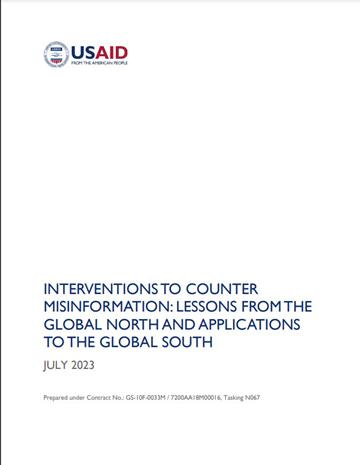
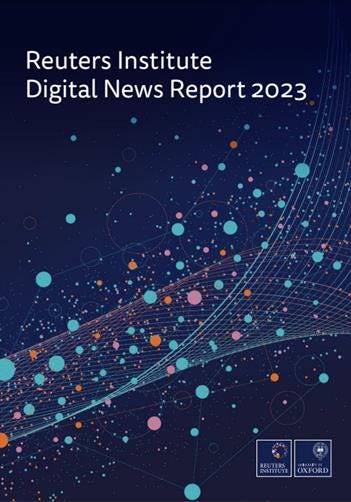
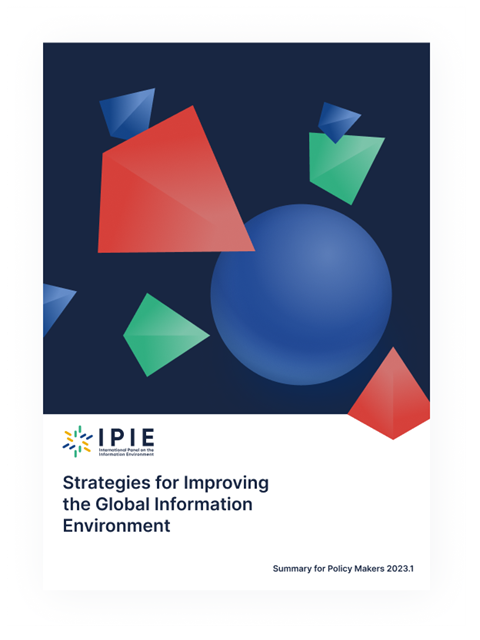
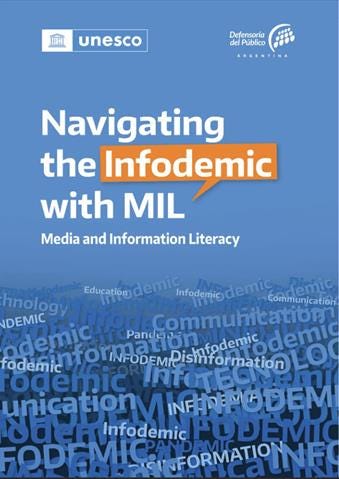
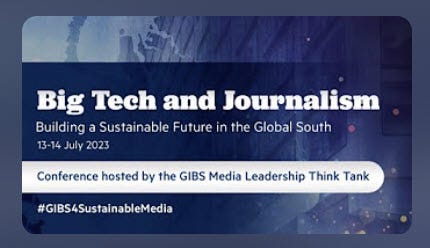
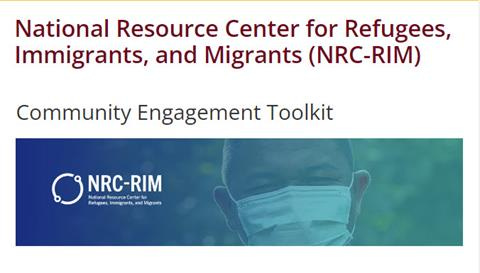

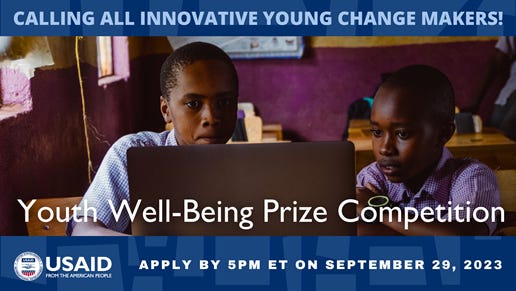

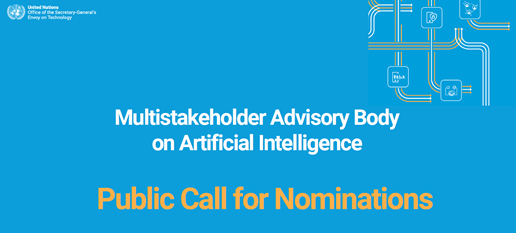
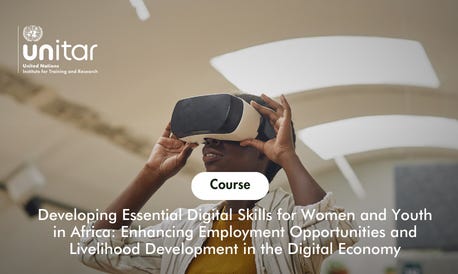

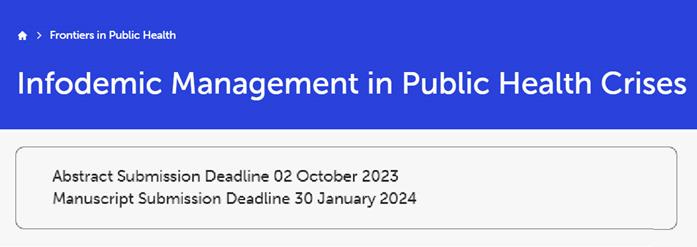
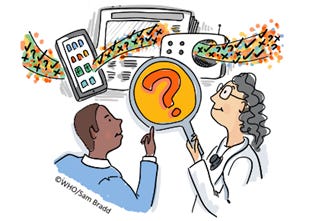
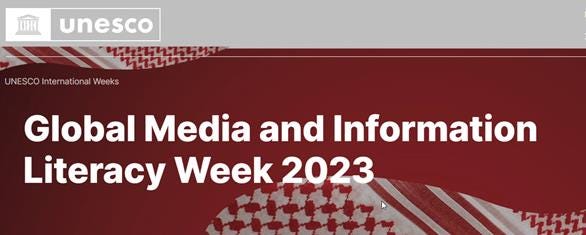


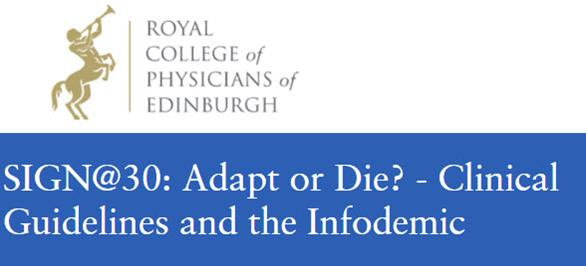

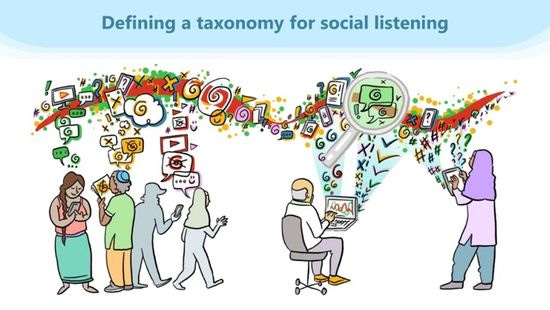
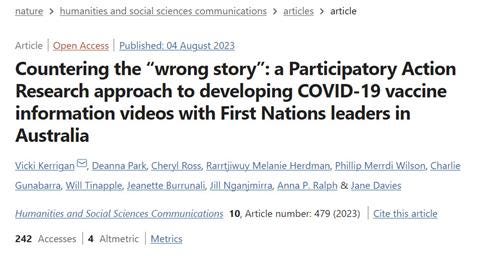
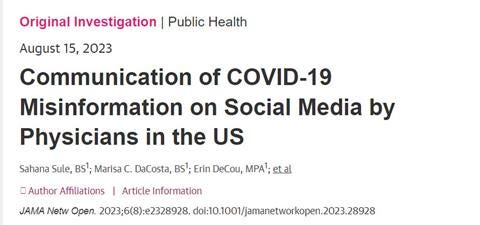
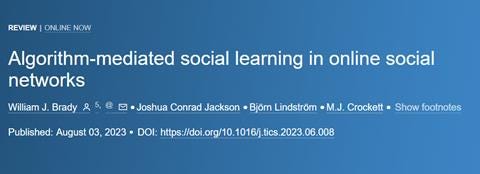
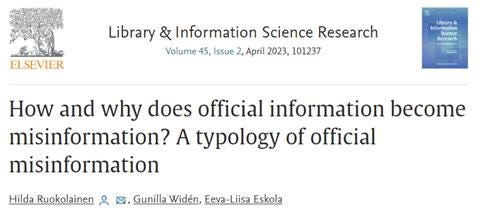
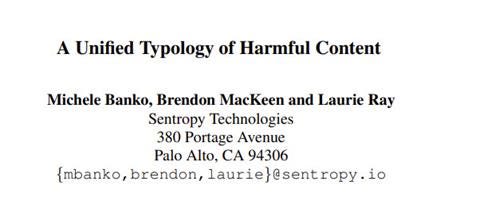
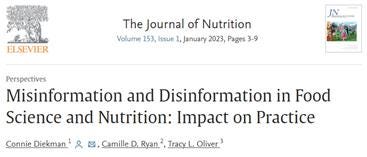
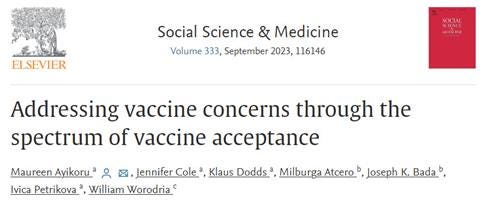
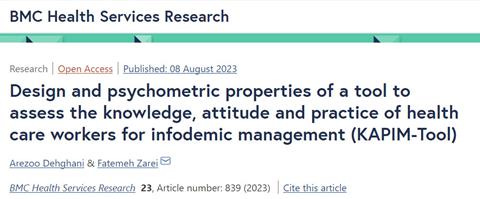
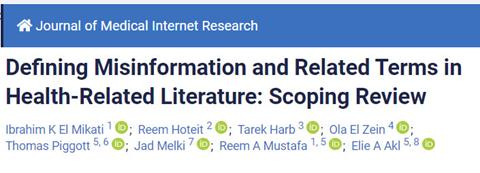

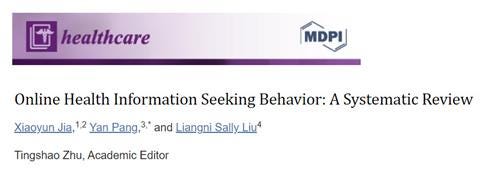
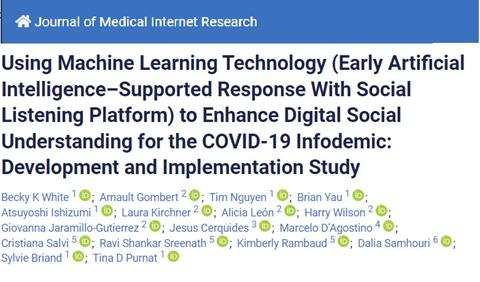
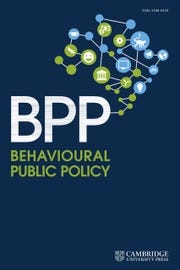
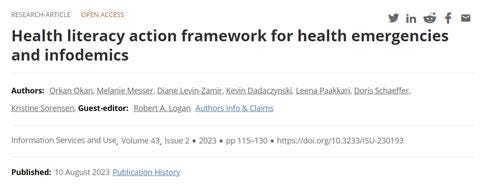
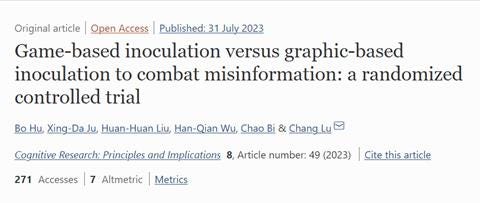
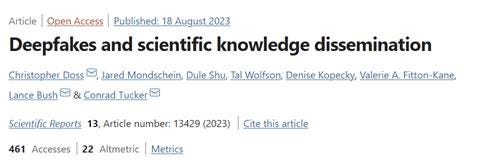

Dammmmn! I thought I'd never get to the bottom of this psychotic list. Hope they spend All their plandemic money on it and hope it wastes their time for years and then just disappears.
Love the compilation. While searching for health misinformation like that from the WHO, many fail to realize that they're becoming less healthy from the WiFi that they're using to search for said misinfo!
If you want to be healthy, go hardwired!
https://romanshapoval.substack.com/p/how-to-hardwire-your-phone